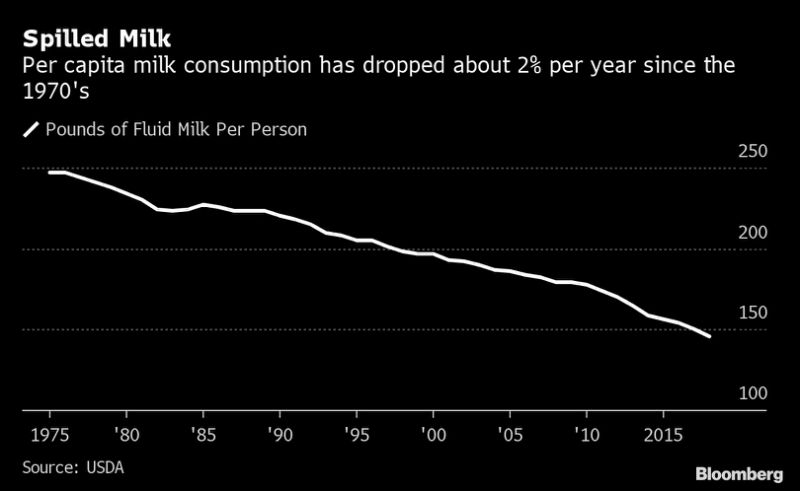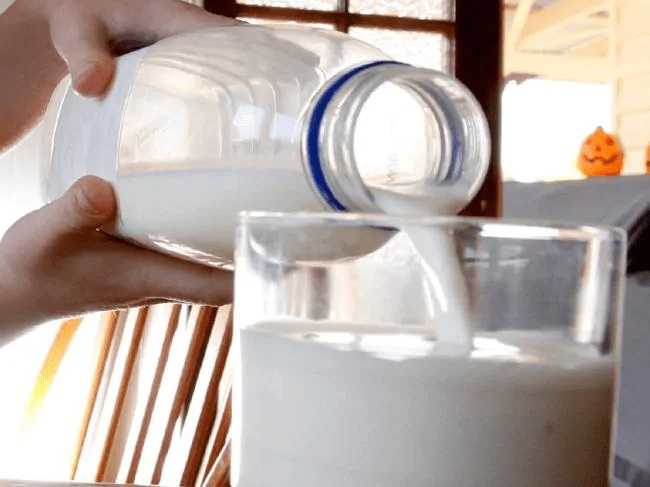
While Starbucks accounts for just 0.3% of U.S. milk production, the decision to formally declare an emphasis on non-dairy options may encourage other food-service outlets to follow suit. That could add momentum to the shift toward oat, nut, soy and other alternative beverages for health and environmental reasons. American cow-milk consumption has fallen about 2% each year since the 1970’s, according to the U.S. Department of Agriculture.
It’s a trend that has helped put plenty of American dairy farmers out of business and led to two big U.S. processors — Dean Foods Co. and Borden Dairy Co. — into bankruptcy. Dean is one of Starbucks’ key suppliers, data compiled by Bloomberg show.
Marketing group Dairy Management Inc. said that while it shares Starbucks’ commitment to sustainability, the industry’s environmental footprint is small and shrinking due to innovative farm practices and new technologies. “Both plants and animals play a critical role in the health of the people and the planet,” the group said.
Spilled Milk
Per capita milk consumption has dropped about 2% per year since the 1970’s

Source: USDA
— With assistance by Mike Dorning
























